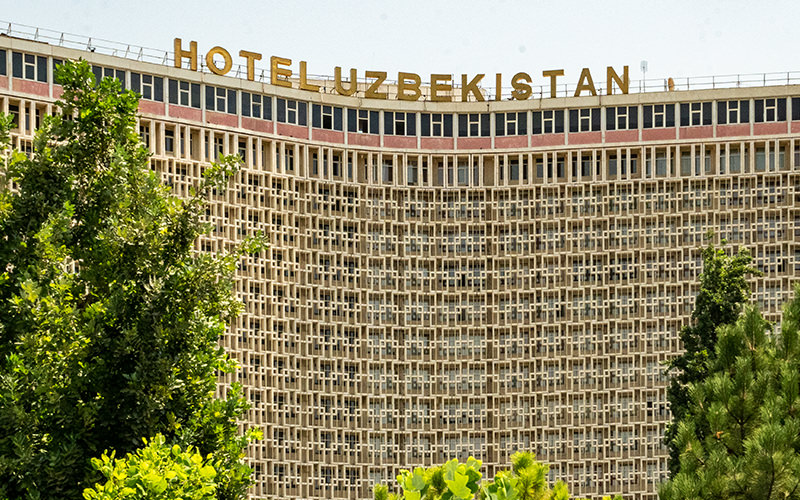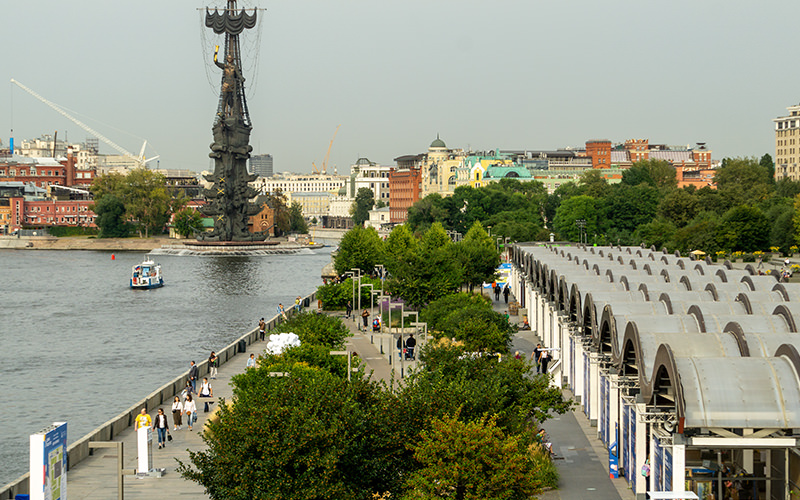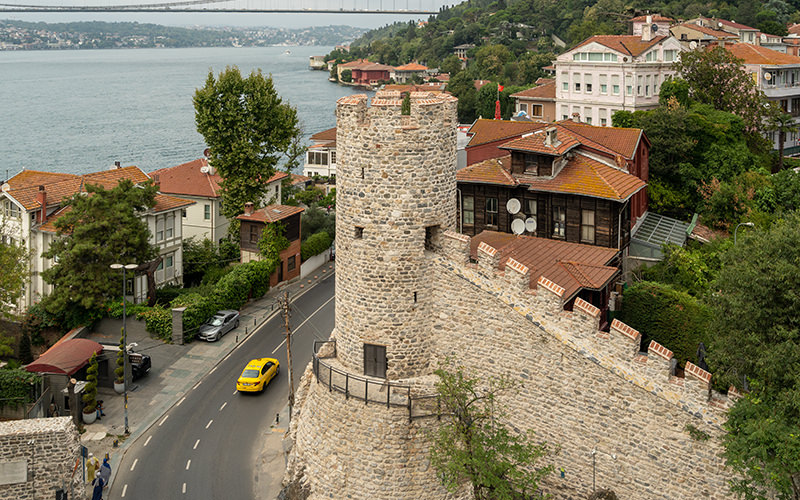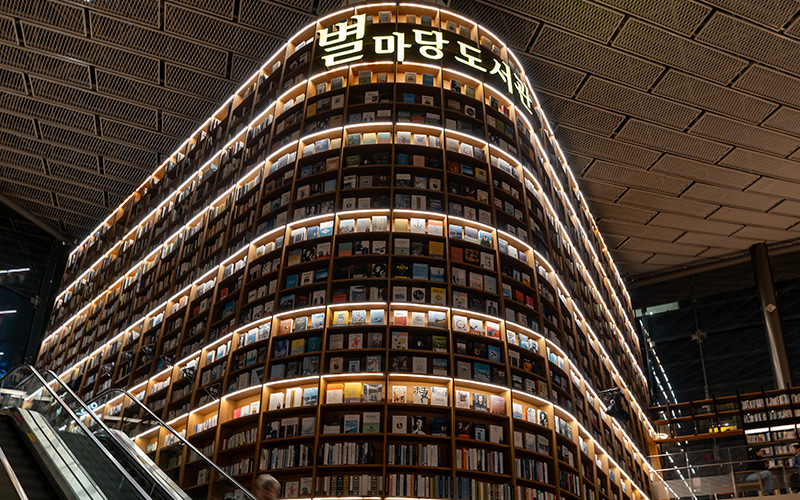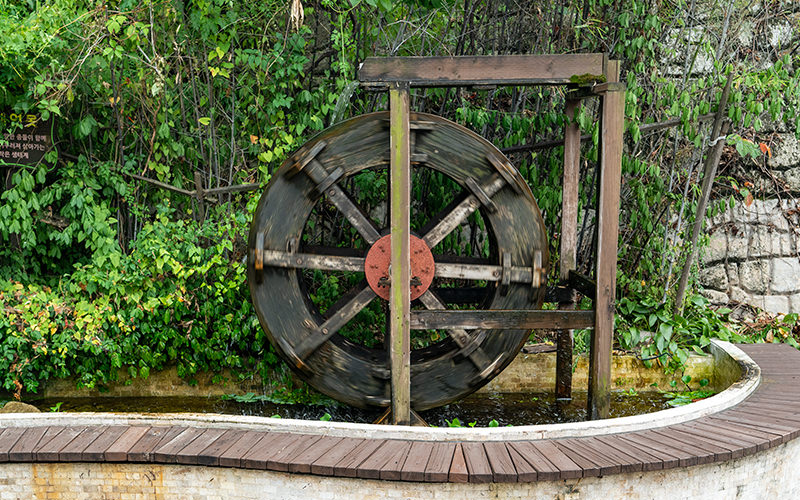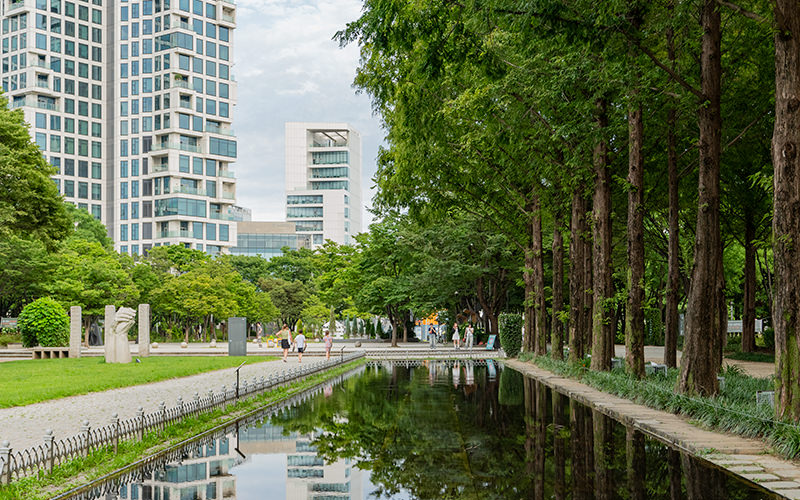During my trip around Seoul, I planned to stop by the large COEX shopping mall. While choosing the route, I noticed that the colorful Bongeunsa Buddhist temple is located in this area, so I decided to visit it first. Here are some photos of the place.
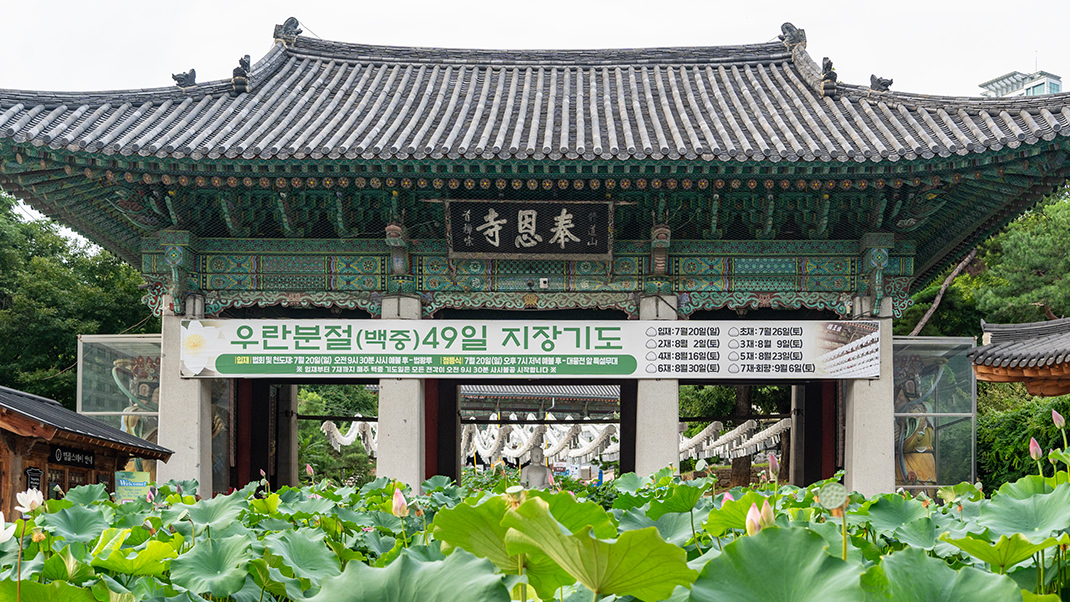
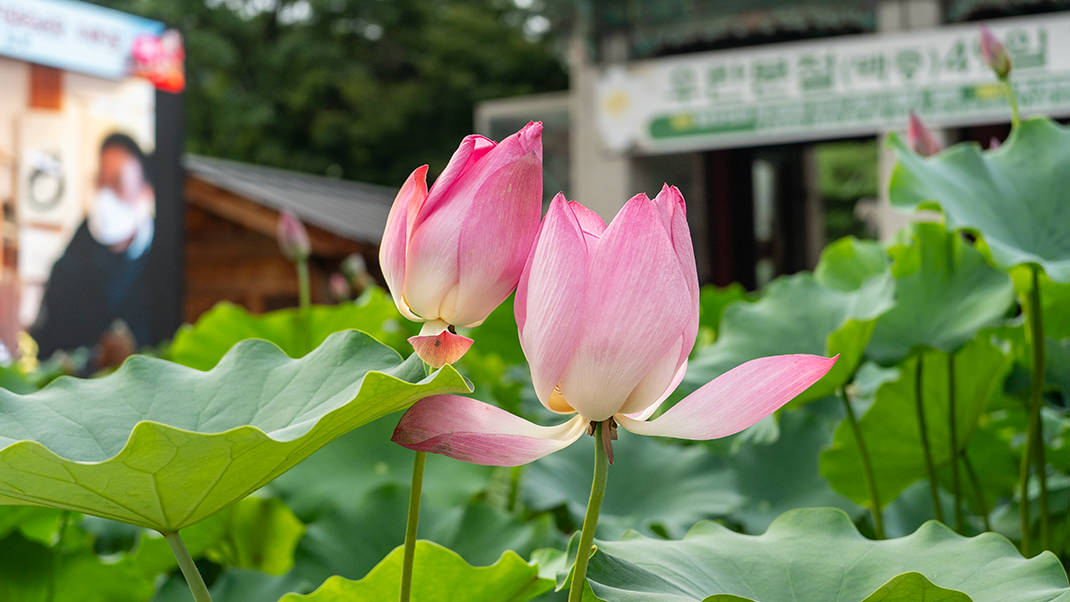
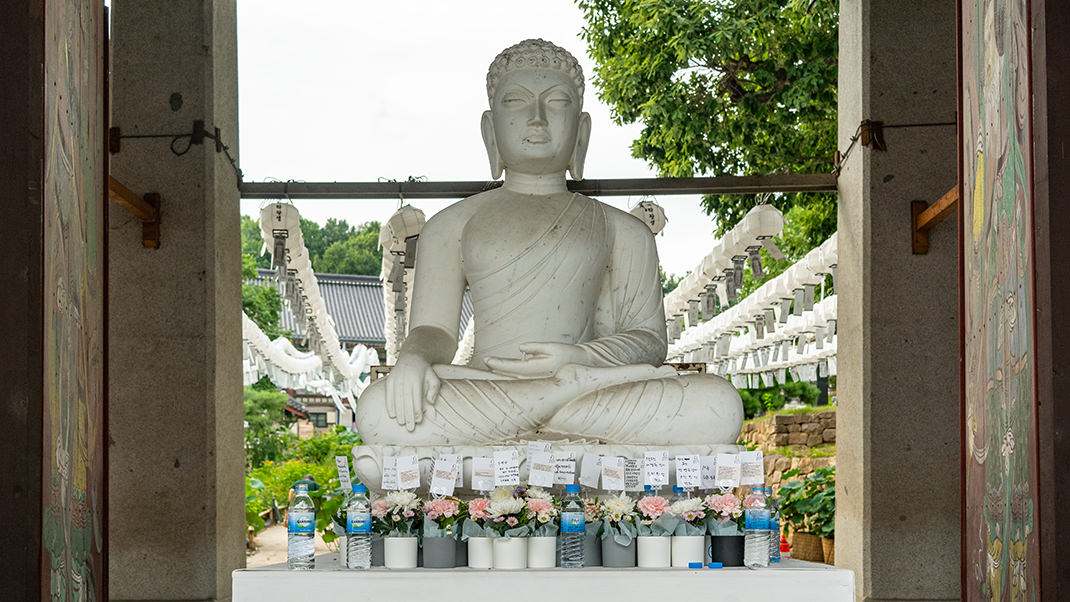
A Walk Through the Temple
The temple was founded back in 794, during the period of the Silla state—one of the historical polities that once existed on the Korean Peninsula.
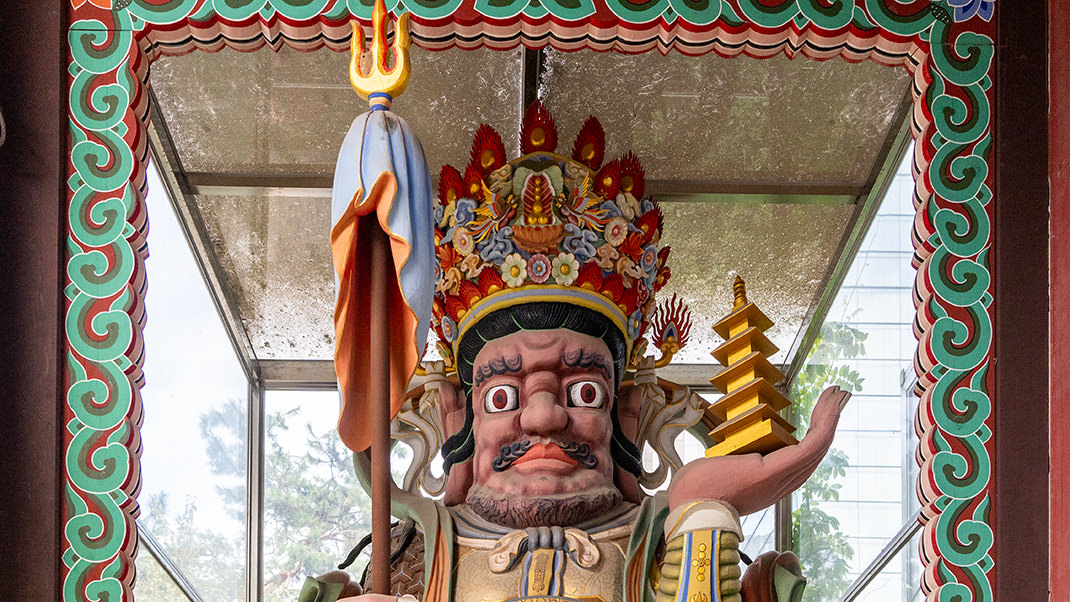
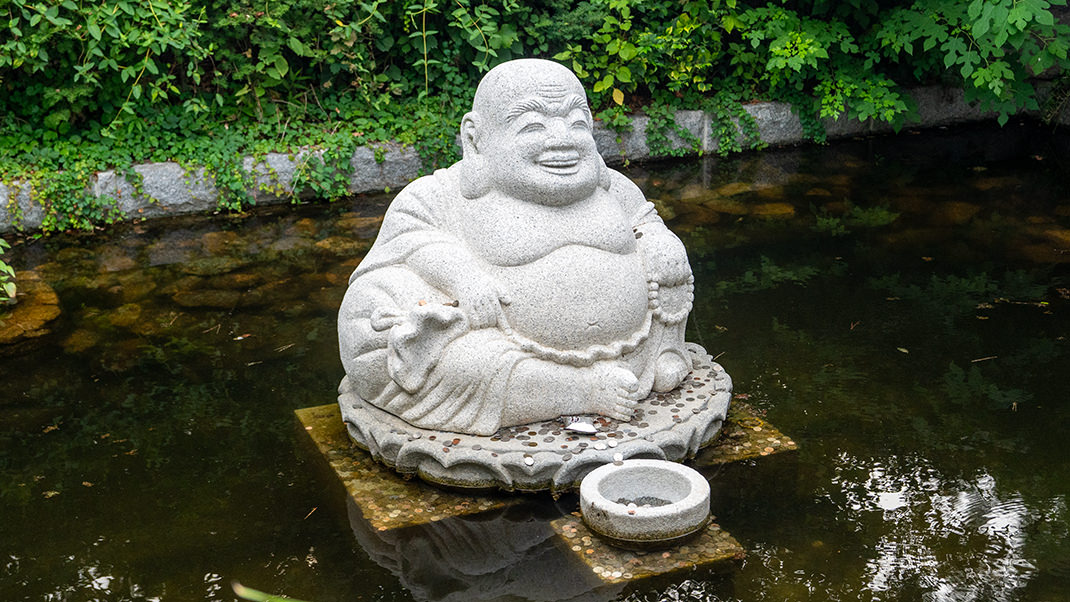
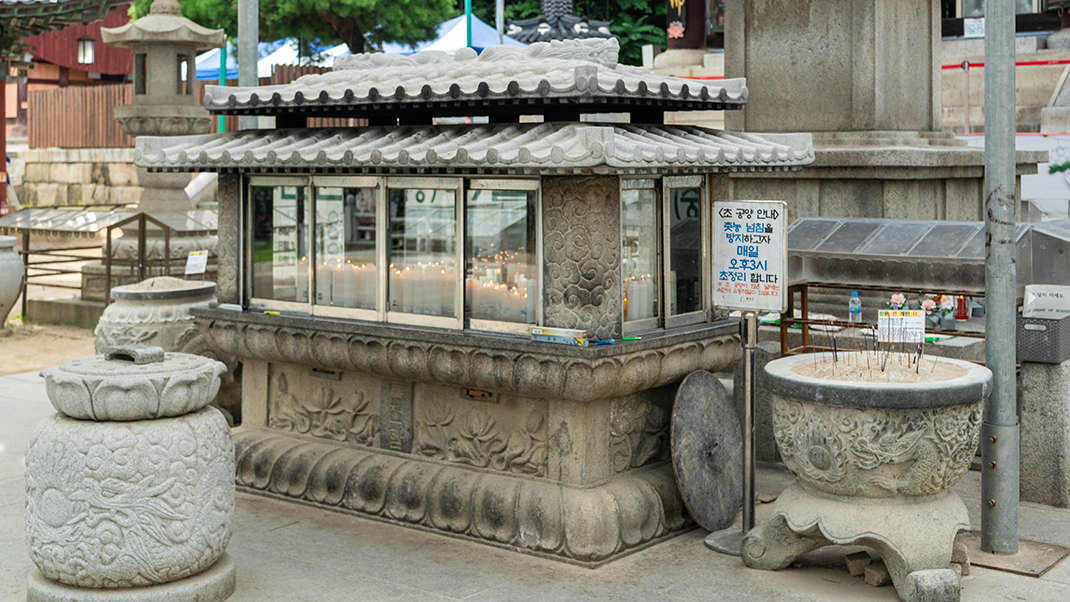
The temple’s original name was Gyeonseongsa. In 1498 the complex was restored and expanded, and at that time it received its current name—Bongeunsa. Initially the temple was not located here; its buildings stood near the royal mausoleum about a kilometer away. The complex was moved to its present site during the reign of King Myeongjong (Joseon period).
There are many structures on the temple grounds: in addition to religious buildings and objects, there is, for example, a cultural center, an educational center, a library, and a teahouse. Bongeunsa houses 3,479 sacred Buddhist scriptures. Each year a ceremony is held during which monks parade with the scriptures balanced on their heads. Another annual event organized by the temple is the Lotus Lantern Festival.
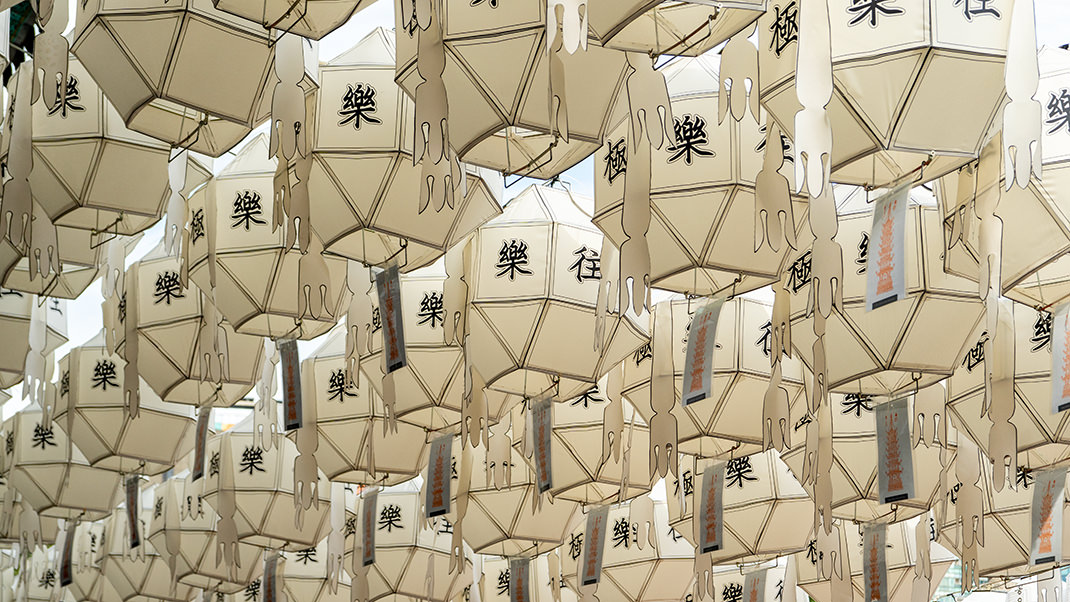
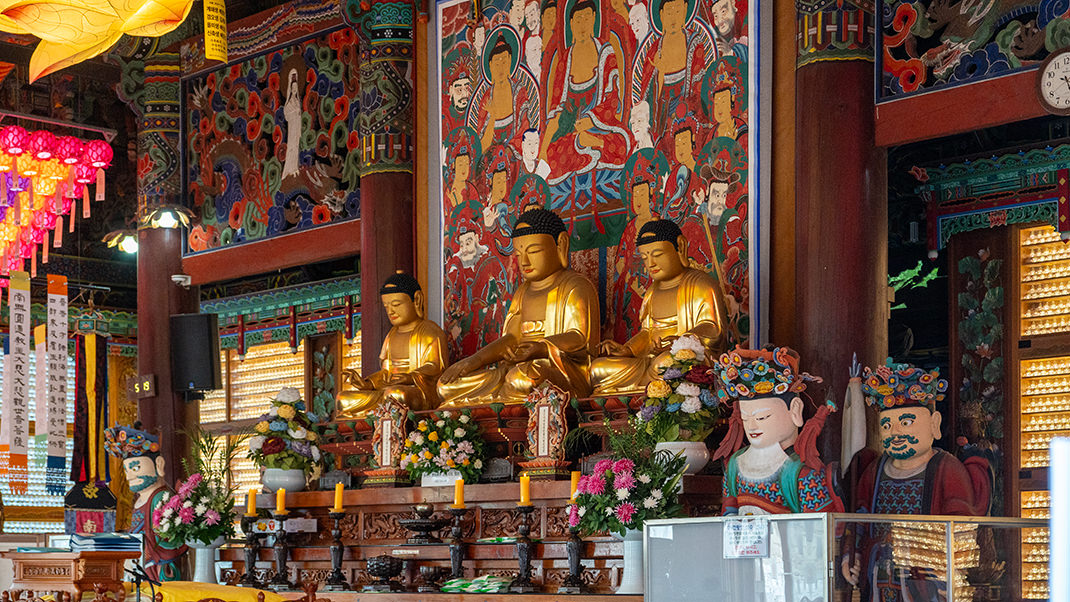
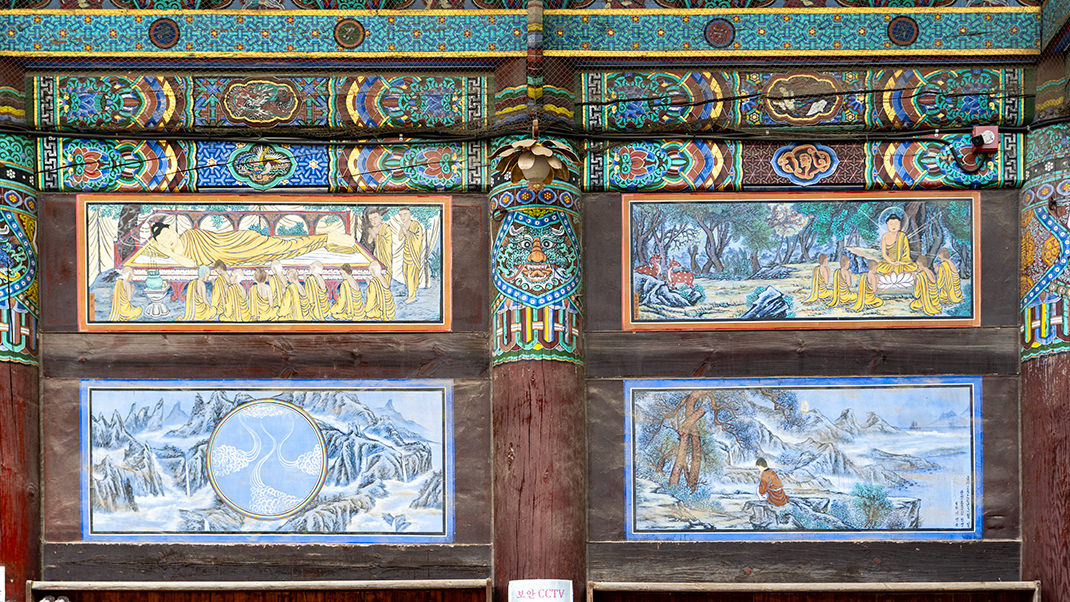
In the northwestern part of the complex there is a platform with a statue of the Buddha Maitreya—also called the Buddha of the Future. It is believed that Maitreya will come when the human lifespan reaches 80,000 years. According to Buddhist texts, this will happen in more than five billion years. This part of the temple was added in 1996.
The Templestay cultural program operates here; participants can stay at the temple, take part in morning services, and get to know the place more closely. There is a guesthouse on the grounds with a meditation hall, a room for tea ceremonies, and guest rooms with bathrooms.
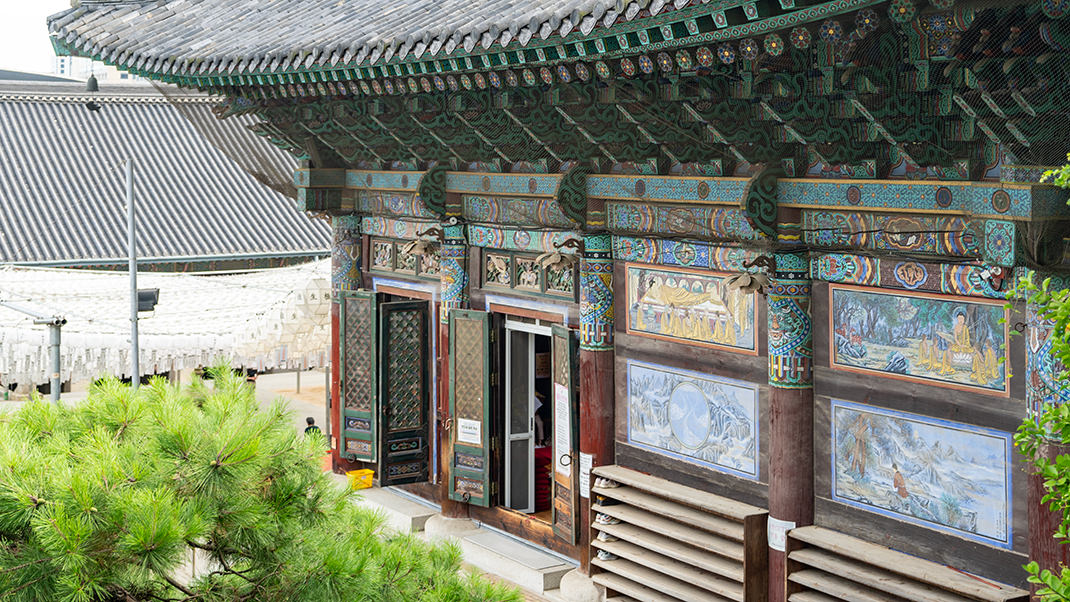
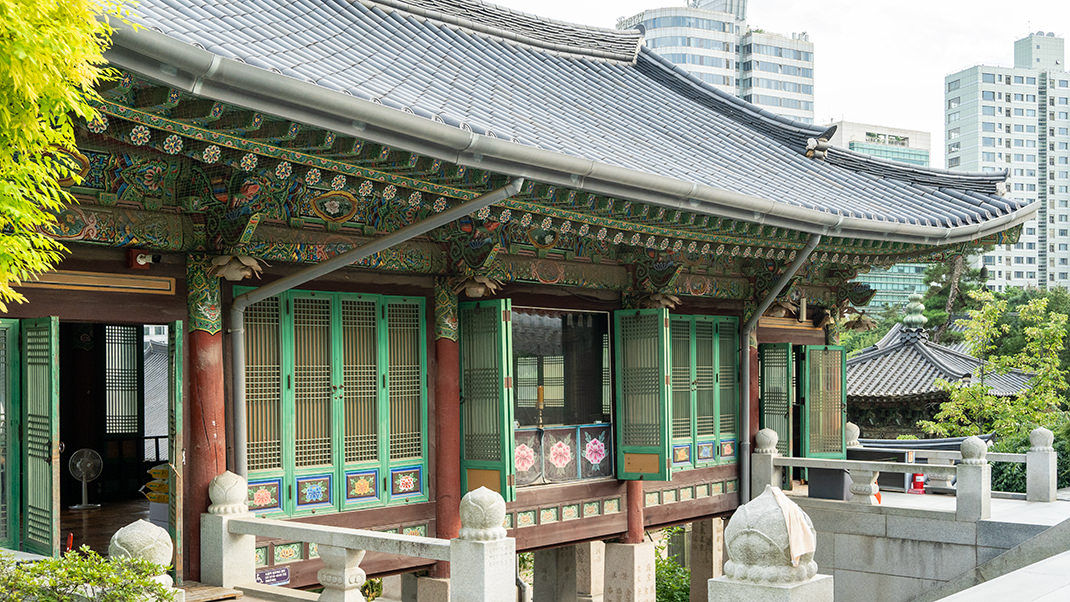
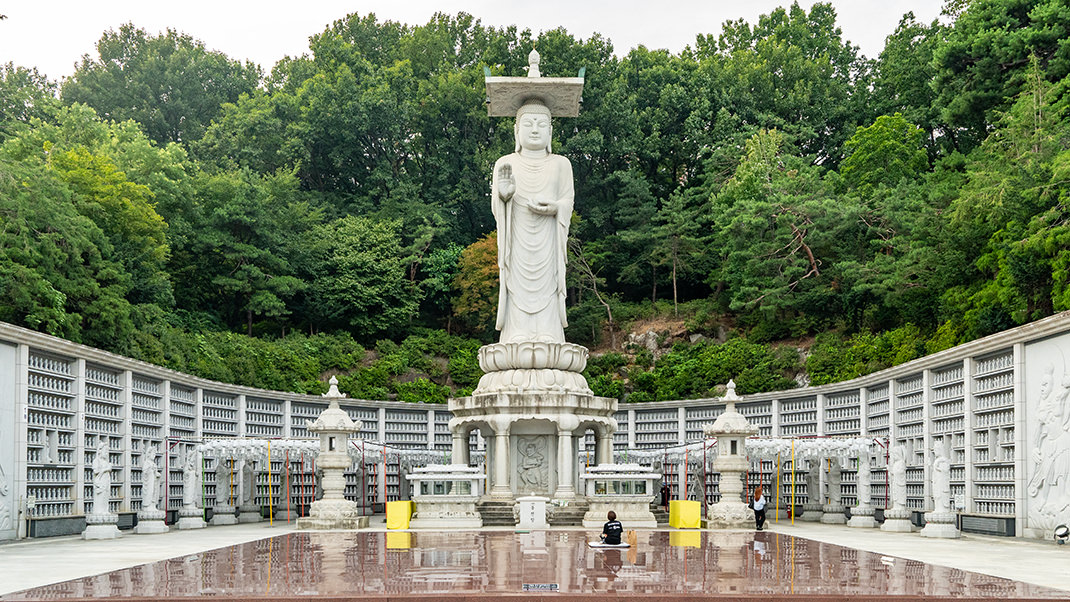
How to Get There by Metro
Bongeunsa Temple is located in the southern part of the city. Several stations are very close by—Bongeunsa, Samseong Jungang, and Cheongdam. The walk from the metro exit to the temple takes from 5 to 15 minutes. The first is the closest; the last is the farthest. The Naver app is convenient for planning routes around Seoul.
Entry to the temple grounds is free. I didn’t come across any information about the complex’s opening hours. I was here at 17:30 and the temple was still open. After visiting the site, you can cross the road and pop into the COEX mall—there you’ll find the Starfield Library, another unusual and free place in Seoul.
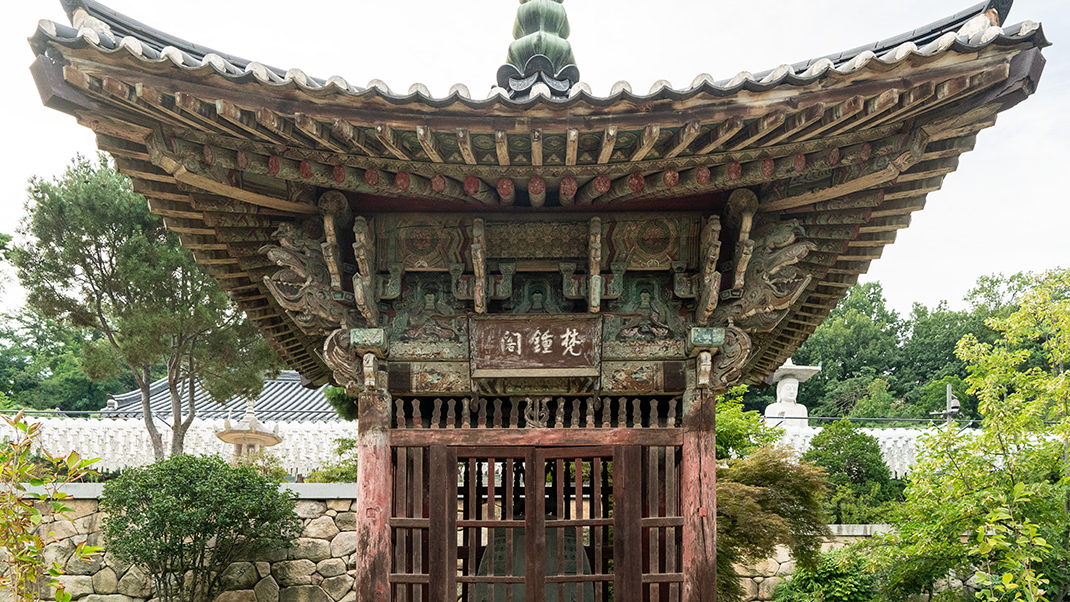
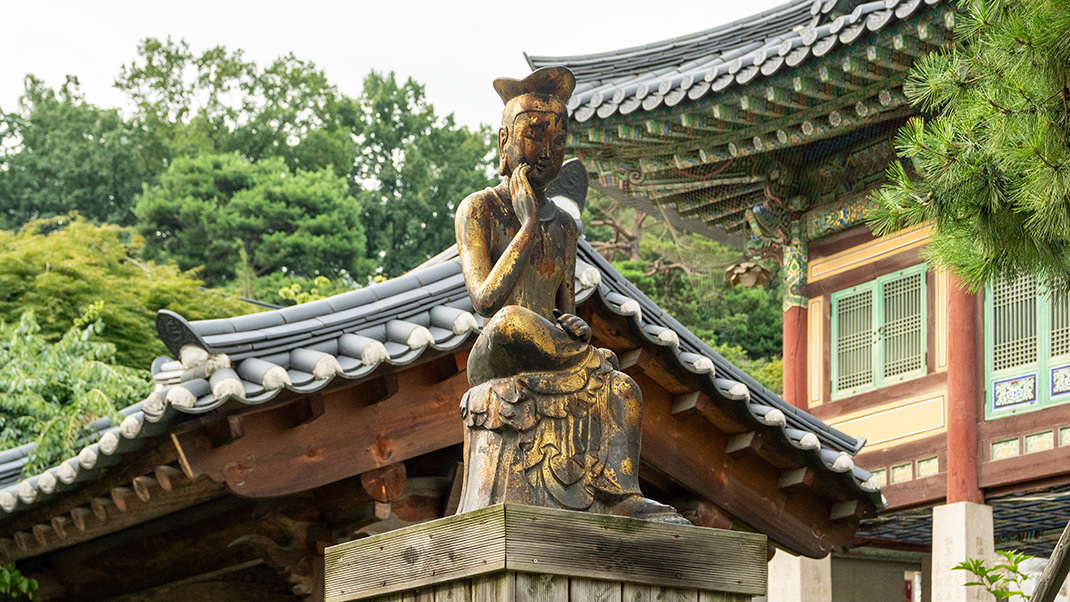
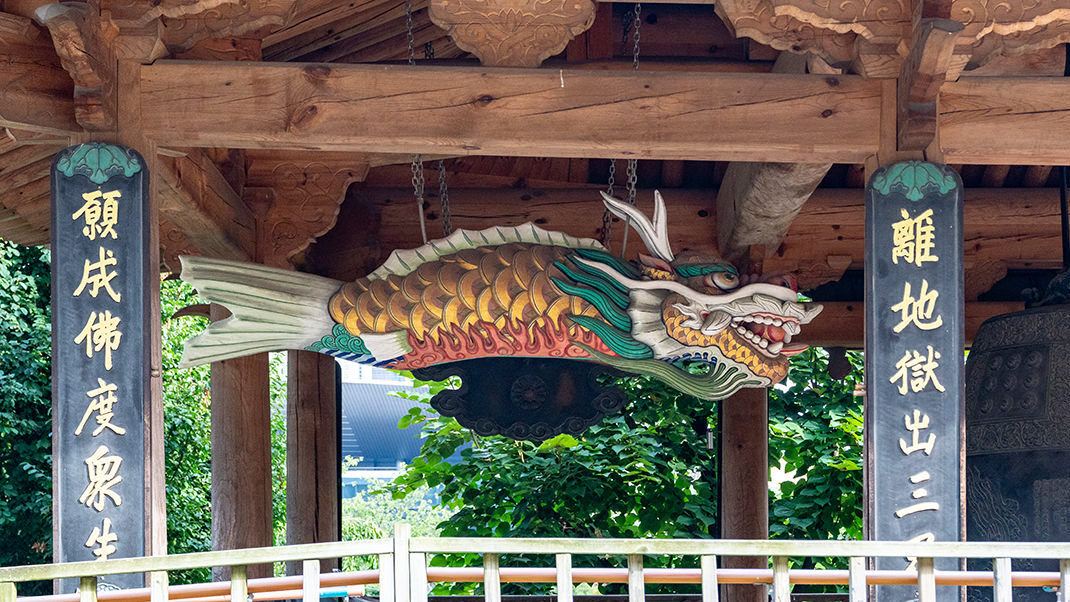
In the next articles about Seoul I’ll tell you about a large architectural complex with a shrine, palaces, and a recreation area with the unusual name “Secret Garden.”
Happy travels!


